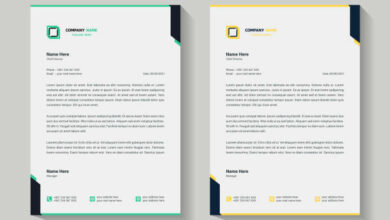Cover Letter: What Goes Into A Perfect Cover Letter

A cover letter is not only a necessary component of the job application process, but it is also an important means of promoting yourself to a potential employer. In this blog, you’ll find tips on how to write a cover letter that will make your name memorable. So let’s consider what goes in a cover letter and some essential steps to writing a perfect cover letter?
What is a cover letter?
A cover letter is a letter that accompanies a job application. It should be tailored to the specific position you are applying for and should highlight your skills, qualifications, and why you would be a good fit for the position.
The goal of a cover letter is to introduce yourself to the employer and introduce your credentials in an interesting and easy-to-read way. The format of your cover letter will depend on the type of position you are applying for, but most common formats include:
- Name
- Address
- Phone Number
- Email Address (if available)
Why should you write one?
When it comes to job applications, a cover letter is key. And, as with any important document, you want to make sure it’s perfect.
Here are tips for writing the perfect cover letter:
- Start with a strong introduction. Introduce yourself and your qualifications succinctly and honestly. This will set the tone for the rest of your letter.
- Be personal. In your introduction, mention why you’re interested in this specific position and how your skills would benefit the company. Use concrete examples to illustrate your points.
- Address the recruiter’s concerns head-on. Make it clear that you meet all of the requirements listed in the job listing and that you’re eager to begin work immediately. If there are any questions you can answer, do so now or in a follow-up email after getting feedback on your application form (more on that below).
- Keep it concise and focused. A good cover letter should be no more than two pages long – shorter is better! Try to stick to one major point per paragraph, and avoid vague language or excessive filler words like “very” or “excellent.” Make sure each sentence counts; there aren’t enough space on most application forms for lengthy paragraphs of prose!
- Proofread carefully! No matter how good your writing may be, there’s always a chance you could miss something – even if you’ve proofread multiple times before sending your application off
What information should you include on your cover letter?
When writing a cover letter, it is important to keep in mind that your goal is not to win the employer over with eloquence or persuasion – your goal is to stand out from the other candidates and show them why you are the best candidate for the job.
Cover Letter Basics
When writing your cover letter, make sure to include:
– Your name
– Date of birth
– Address
– Telephone number
– Email address
– Job title and company name
– The position you are applying for (if relevant)
– The dates you have available for an interview (if applicable)
– A brief summary of your qualifications (or experience if none exist) in relation to the job opening. This should be no more than 1 page long.
Include Enough Contact Information To Reach You Directly If Interested In Interviewing For The Position: Your name, date of birth, address, telephone number, email address and job title/company name. If possible also list the position being applied for as well as the dates of availability for an interview. A brief summary of your qualifications will suffice in this instance.
Formatting tips for a cover letter
When writing a cover letter, it’s important to keep in mind the following formatting tips:
– Use a standard font size for all text in your cover letter.
– Use a standard font for the title and heading, and for the body of your letter.
– Use proper grammar and spelling.
– Be brief, but concise.
– Include contact information (phone number, e-mail address, etc.).
You might also find these articles useful:
- How To Tell Your Boss You Want To Quit: 6 Ways to Do It
- Common Interview Questions: What Do They Really Want To…
- Top 10 Child Development Jobs
- The Top 10 Careers In Technology
- Top 9 Sports Management Jobs
- Top 7 Jobs in the Humanities
Frequently asked question
What three things are in a cover letter?
Cover letters are a key part of any job application. They can show that you have put thought into your candidacy and that you are willing to take the time to improve your chances of being selected for an interview.
There is no one right way to write a cover letter, but there are a few important things to keep in mind when crafting yours. Here are three tips for writing a perfect cover letter:
- Address the Recruiter by Name
When introducing yourself and your qualifications in your cover letter, be sure to use the recruiter’s name. This will make it appear as if you’re taking the time to personalize your application process for them.
- Use Specific Words and Phrases
When describing your skills and experience, use specific language that appeals to the particular organization you’re applying to. For example, if you’re applying for a marketing position, mention phrases like “senior copywriter” or “strategic planning experience.” This will help show that you know what they are looking for and that you have put in the effort to learn more about their company before submitting your application.
- Be Concise
Your cover letter should be no more than two pages long – not including attachments (if any). This will give hiring managers enough information to determine if you would be a good fit for the job opening, without bogging them down with too
What information should you not conclude in your cover letter?
To land an interview, your cover letter should be tailored to the job opening and company. However, there are a few things you should avoid concluding in your cover letter.
Firstly, don’t state that you are “the perfect candidate for this position” or anything along those lines. Instead, focus on highlighting why you would be a great fit for the role and the company.
Secondly, don’t include any personal information such as your salary or education levels. This will only serve to distract from your argumentative points and make it difficult for the hiring manager to read your cover letter objectively.
Lastly, don’t send a generic cover letter that contains boilerplate language found in many online resources. Tailor your writing to the specific job opening and company you are applying to.
Should i write a cover letter if not asked?
If you have not been asked to send in a cover letter, there is no need to do so. Cover letters are only necessary if you are applying for a job that asks for one. A good rule of thumb is to follow the instructions given to you by the company or organization you are applying to. If they do not ask for a cover letter, then don’t include one.
Conclusion
A cover letter is one of the first things potential employers see when they visit your online resume. It’s essential that your cover letter be tailored to the company you are applying to, and that it highlights your skills and qualifications in a way that will make an impact.
There are a few things you should keep in mind when writing your cover letter, including making sure to focus on why you are interested in working for the company and highlighting any relevant experience or qualifications you have.
Once you’ve drafted your cover letter, take some time to proofread it carefully so that it looks polished and professional. Finally, send it off to potential employers with confidence — knowing that you have put in the extra effort will give you the best chance of landing an interview! For more career tips, kindly visit Dailygam.com






